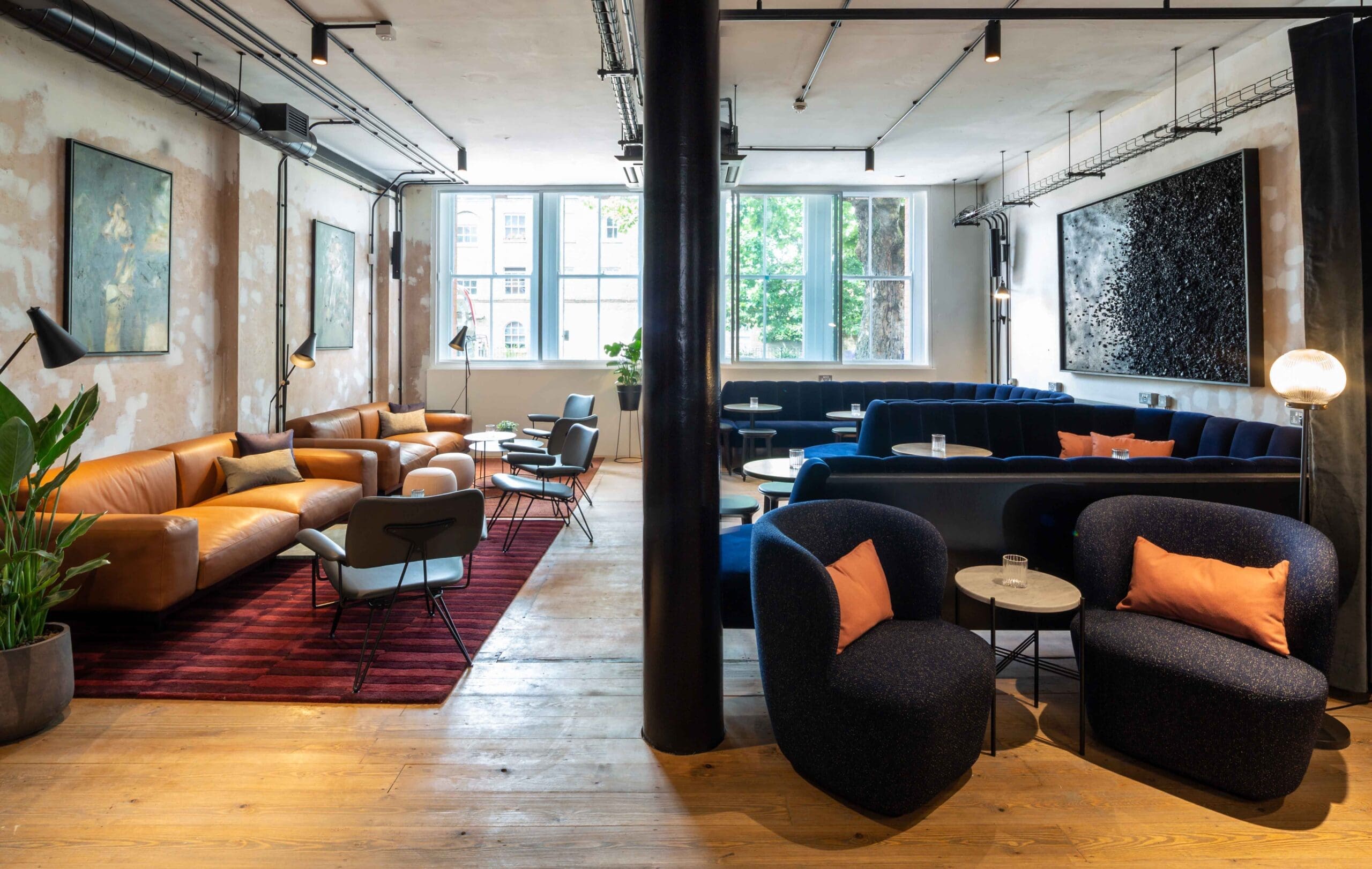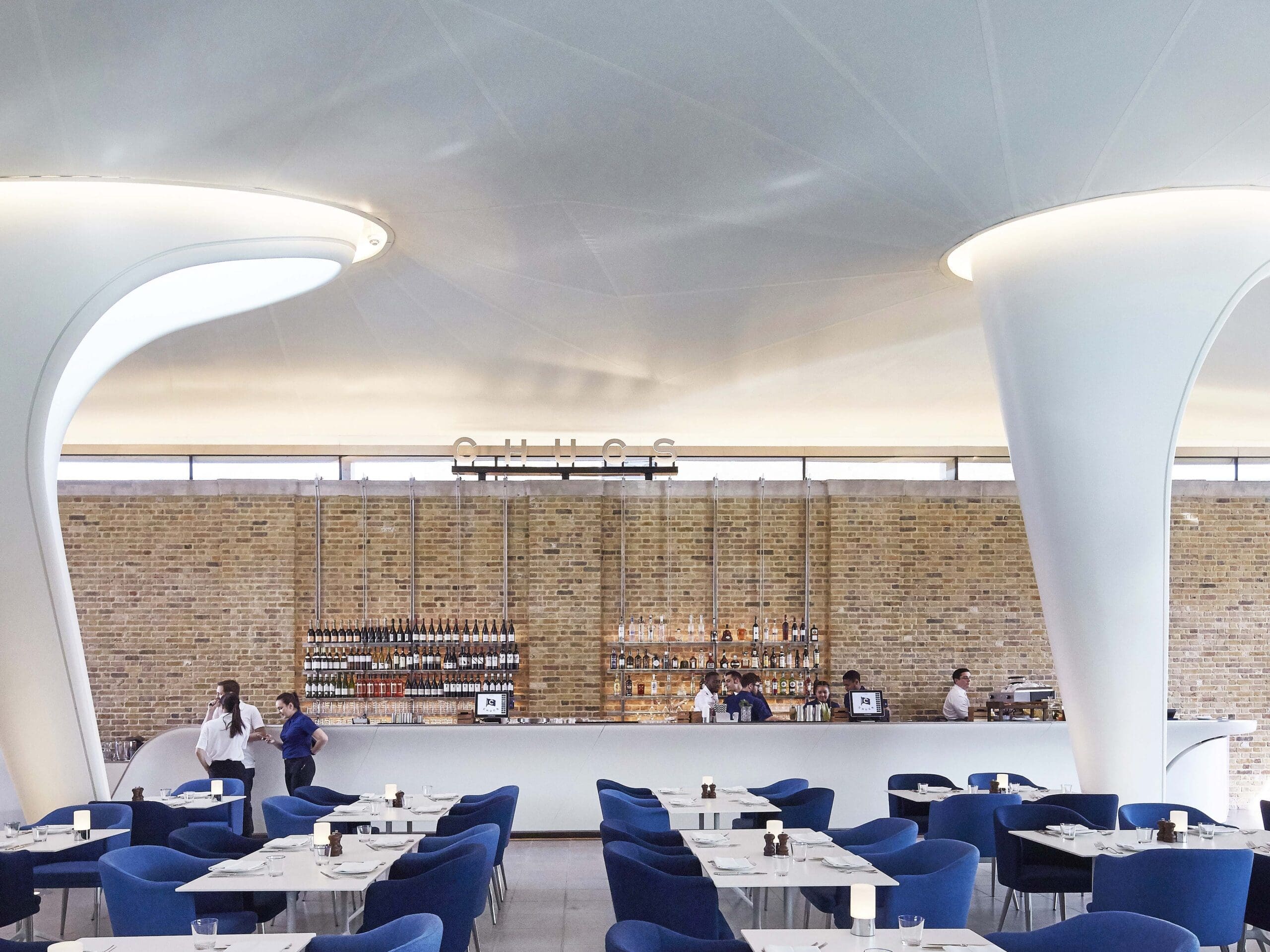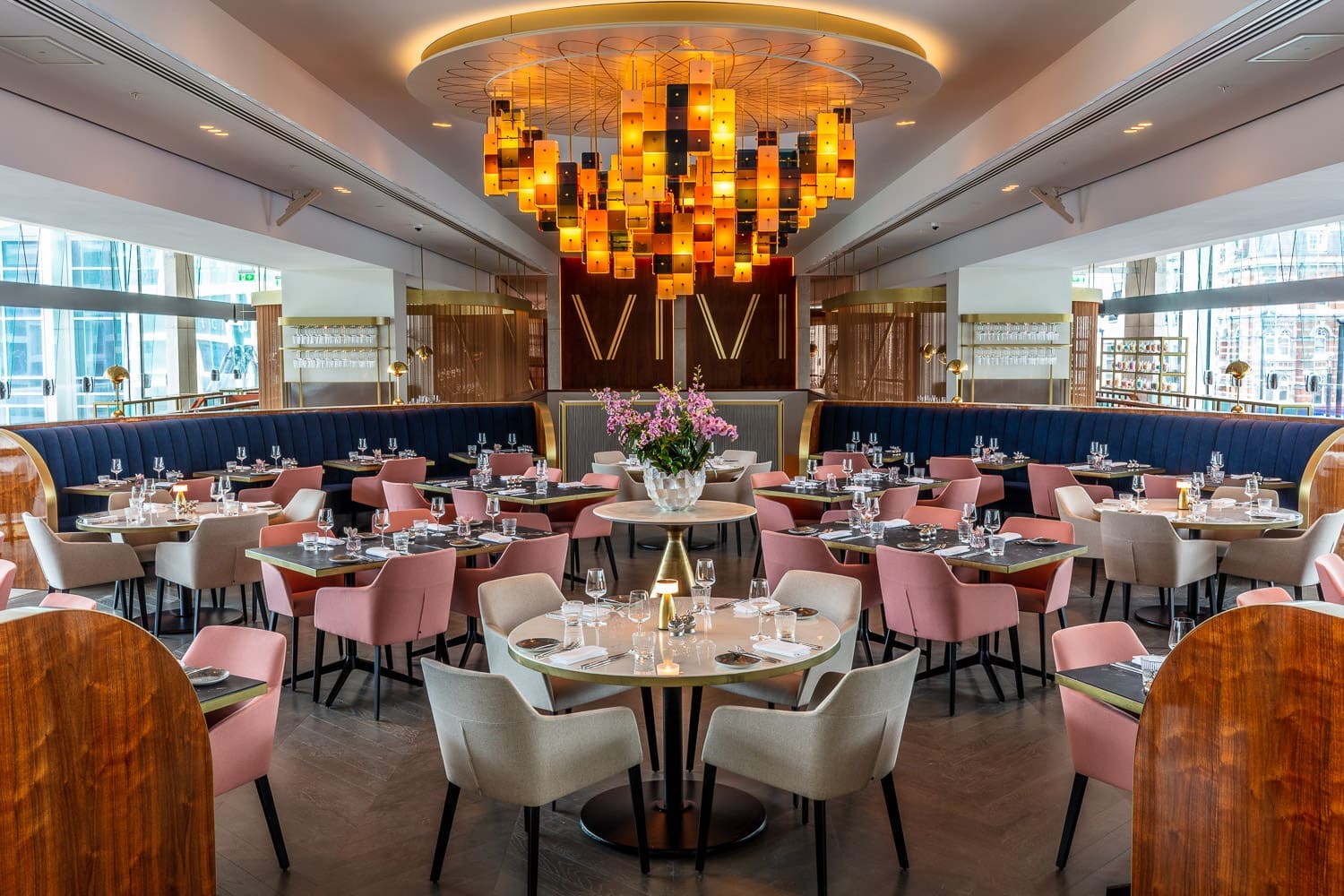-
Articles + –
Interior design: the next sustainability challenge for foodservice
Sourcing interiors is no different to sourcing food; it is a matter of general ethical procurement. When it comes to sustainable interiors within the foodservice industry, there are four main aspects to consider: commitment to sustainability, quality matters, smart design and ethical branding. Nick Schute, Creative Director of Dodds & Shute – a sustainable design consultancy – talks to Mintel about the importance of a values-based design and the principles for restaurateurs to keep in mind when it comes to interior design.
Commitment to Sustainability
To become an environmentally sustainable business, every person has to play their part. Shute believes this is the first step towards a values-based restaurant design. Restaurant owners need to be clear about their ethical and environmental goals, whether it’s reducing their carbon footprint, making their restaurant a plastic free space or simply avoiding leather goods. “There are a few key things to consider asking when choosing your suppliers. Do they have a sustainability message or ethos? Where are the goods made? Where are materials sourced from? Is their supply chain free from modern slavery?”

Quality Matters
Restaurant furniture is the least sustainable part of a project build due to evolving design trends and wear and tear. Shute believes restaurant owners can source and maintain interiors efficiently and sustainably by considering high-quality materials and well-made products that are designed to last. “Always checking both the product’s warranty and its commercial suitability is insurance for durability and timeless design. Choosing quality and suppressing the urge to regularly change interiors reduces the amount of turnover of furniture and effectively keeps waste out of landfills and reduces your impact.”
In addition, owners can explore products with the lowest environmental impact of production. “Organically occurring materials that require fewer processes to extract are better than materials like plastic.”
 Ministry Club features the Audrey low stool by Minus Tio. All its designs are made in Sweden and most materials used have sustainability certifications. Photo Credit: James Jones
Ministry Club features the Audrey low stool by Minus Tio. All its designs are made in Sweden and most materials used have sustainability certifications. Photo Credit: James Jones
Smart Design
Upcycling, repurposing and reclaimed materials are great ideas for owners that want to get creative with their restaurant design or create statement pieces. Owners can work with innovative fabricators who can create materials from recycled plastic, fabric, marble, wood, glass and ceramic. Shute explains that “the goal here is the reduction in the depletion of natural resources and diverting waste from landfills.”
He adds that another solution is considering modular designs that are more flexible and can adapt to the interior or have parts that are easily replaceable, so when damage does occur only parts are replaced rather than the entire product. In addition, the owner can choose upholstery with loose covers, so it can be easily cleaned if damaged.
 Chuc’s features folding tables by Kristalia, which makes 100% of its products in Italy. The powder coating and laminate of the tables has environmental certification. Photo Credit: Kilian O’Sullivan
Chuc’s features folding tables by Kristalia, which makes 100% of its products in Italy. The powder coating and laminate of the tables has environmental certification. Photo Credit: Kilian O’Sullivan
Ethical Branding
Consumers are becoming more aware of the problems created by plastic waste, with over half of Britons (52%) saying they have noticed news about single-use plastic, according to Mintel’s UK report on burger and chicken restaurants. As companies are increasingly being judged on what they are doing to take on ecological, social and economic responsibility, which way should restaurant operators go, as ethical demands on brands increase?
Shute believes consumers want to associate themselves with environmentally conscious brands. “Restaurateurs should consider what customers’ first experiences are and how this visual impact complements their ethos. Business owners that don’t care about these kinds of things will find themselves quickly being left behind, and the food and beverage industry is more competitive than most.”
 VIVI Restaurant & Bar features dining chairs from Andreu World, made of sustainably sourced timber. The fabrics are completely natural, either wool or flax. Photo Credit: Chris Orange
VIVI Restaurant & Bar features dining chairs from Andreu World, made of sustainably sourced timber. The fabrics are completely natural, either wool or flax. Photo Credit: Chris Orange
What we think
This interview points to a subtle shift in the way consumers consider how ethical a restaurant brand is before visiting. Indeed, environmental wrongdoings have grabbed global media attention. As a result, consumers have a better understanding of companies’ efforts to reduce pollution and resource use along with protecting natural habitats. In foodservice, this extends beyond merely food sourcing and zero-waste efforts. Operators that focus on sustainable interiors can offer a further differentiation point to ethical consumers looking for brands that align with their personal values.

Trish Caddy is a Senior Foodservice Analyst, writing reports about the UK’s eating out market. She previously worked as a restaurant cook in London.
-
Mintel StoreGet smart fast with our exclusive market research reports, delivering the latest data, innovation, trends and strategic recommendations....View reports
-
Mintel LeapMintel Leap is a revolutionary new AI-powered platform that will transform your research process....Book a demo












 Ministry Club features the Audrey low stool by Minus Tio. All its designs are made in Sweden and most materials used have sustainability certifications. Photo Credit:
Ministry Club features the Audrey low stool by Minus Tio. All its designs are made in Sweden and most materials used have sustainability certifications. Photo Credit:  Chuc’s features folding tables by Kristalia, which makes 100% of its products in Italy. The powder coating and laminate of the tables has environmental certification. Photo Credit:
Chuc’s features folding tables by Kristalia, which makes 100% of its products in Italy. The powder coating and laminate of the tables has environmental certification. Photo Credit:  VIVI Restaurant & Bar features dining chairs from Andreu World, made of sustainably sourced timber. The fabrics are completely natural, either wool or flax. Photo Credit:
VIVI Restaurant & Bar features dining chairs from Andreu World, made of sustainably sourced timber. The fabrics are completely natural, either wool or flax. Photo Credit: 


























